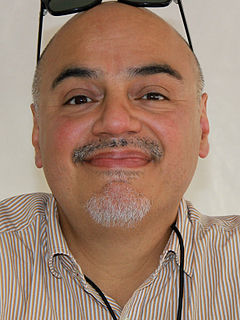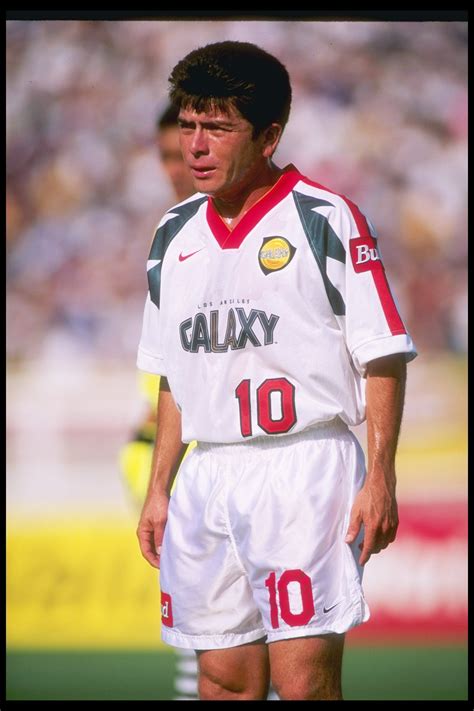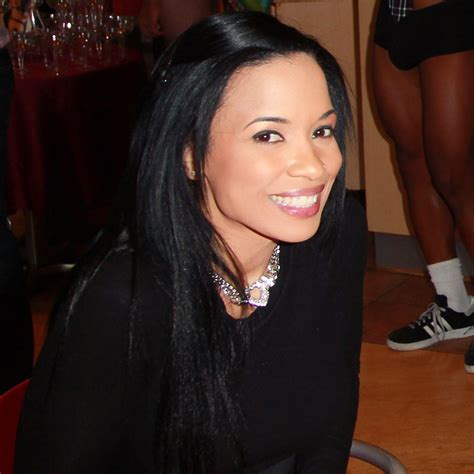A Quote by Hector Tobar
I spent my whole life as a writer talking to just the average guy in Los Angeles and Latin America, talking to working people.
Related Quotes
I can't tell you how many times I get into a taxicab in New York or Los Angeles, and I'm talking to somebody who is a recent immigrant who was a doctor or lawyer or engineer or professor in the country they just came from. They're starting over again in life, and I think the majority of people out there can relate to that.
One of the problems with any kind of talking about the media landscape is that we've just been through an unusually stable period in which, for fifty years, English language media was centered in three cities - London, New York, and Los Angeles - around a very stable group of people working in a relatively stable set of media.
I have spent my life falling. Not the kind that Tiny's talking about. He's talking about love. I'm talking about life. In my kind of falling, there's no landing. There's only hitting the ground. Hard. Dead, or wanting to be dead. So the whole time you're falling, it's the worst feeling in the world. Because you feel you have no control over it. Because you know how it ends.
The good thing about Pittsburgh, it's a good place to be raised... it doesn't tolerate assholes. You're either a good guy or you're a bad guy... When I'm in Los Angeles having these incredibly surreal moments where nobody's saying anything and everybody's talking incessantly, I always have that Pittsburgh voice in my head - shut up, smile, get the job, move on.
I have a simple rule: when I'm on TV, I'm not talking to just my anchor or my colleague on my right. I'm talking to America. I look into the lens, and in my head, I'm talking to somebody in Nebraska. Why Nebraska? Why the Cornhusker State? I have no idea. But it feels like it's a good place to talk to people.
And James L. Brooks then sort of became our mentor, brought us out to Los Angeles and worked on the script for a year with us. We learned so much working with him - just being able to spend time with him, the quality of his mind, the things he comes up with and says. I think Wes [Anderson] and I could go to dinner tonight and spend the whole dinner thinking and talking about things that Jim has said to us over the years.

































